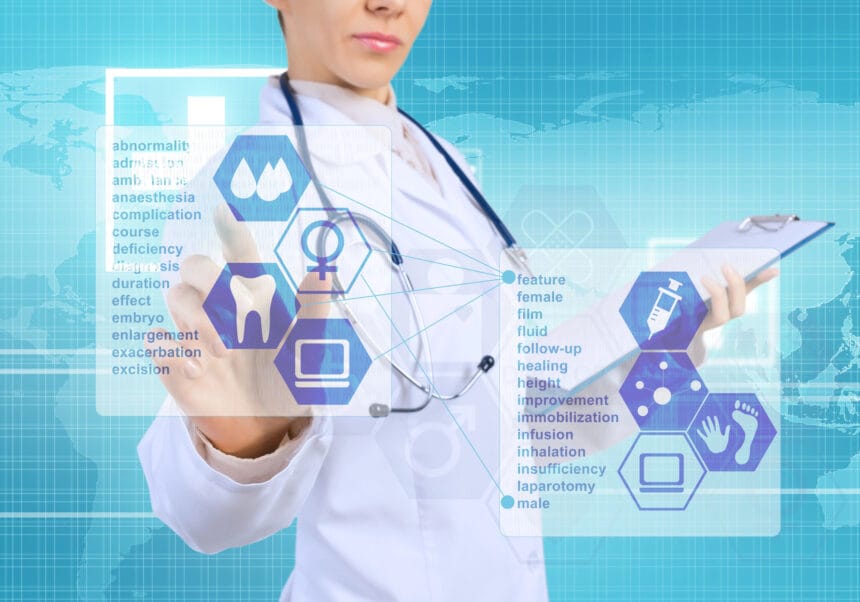Modern healthcare relies heavily on new ideas and options, and hospitals must continually adapt to new technologies to meet the demands of both patients and staff. From improving employee morale to streamlining credentialing processes, the right tools caElevate patient care in 2025! Uncover amazing hospital technologies transforming healthcare delivery and enhancing patient experiences.n make a world of difference in delivering better outcomes. Here are five hospital technologies that are essential for improving patient care and health outcomes today.
Technology can Really Boost Employee Morale
Hospitals know that happy employees make all the difference in the world. However, high stress, long hours, and overwhelming workloads can leave even the most dedicated healthcare workers feeling drained. Technology, when used wisely, can be a game-changer in boosting employee morale and creating a supportive work environment. Tools like scheduling software and real-time communication platforms help streamline workflows, reducing stress for healthcare workers.
When employees have access to intuitive systems that eliminate redundant tasks, they can focus more on patient care and less on paperwork. Implementing wellness-focused technology, such as apps that provide mental health resources or encourage mindfulness, can also promote balance and job satisfaction. With these tools, hospitals create an environment where employees feel valued and empowered, translating to better care for patients.
Hospital Credentialing Software is a Must-Have
Keeping up with the necessary qualifications, certifications, and regulatory compliance for hospital staff is a monumental task, but it’s one that hospitals cannot afford to ignore. Here’s where hospital credentialing software becomes an essential tool for managing employee qualifications, ensuring compliance, and reducing risk. This software streamlines the process of tracking licenses, certifications, and training records for healthcare providers.
Credentialing software reduces administrative headaches by automating what used to be a manual and error-prone process. It not only ensures that all staff meet current regulatory requirements but also provides easy access to up-to-date records during audits or inspections. The peace of mind that comes with knowing your workforce is compliant frees up hospital administrators to focus on strategic initiatives. In an industry where trust and accountability are critical, credentialing software is a cornerstone of operational excellence.
Patient Monitoring Systems are Revolutionizing Care
The ability to monitor patients in real time has transformed hospital care, allowing providers to respond to emergencies faster and manage chronic conditions more effectively. Advanced patient monitoring systems use wearable devices, wireless sensors, and cloud-based platforms to continuously track vital signs including things like heart rate, blood pressure, and even oxygen levels. This technology provides clinicians with real-time insights, ensuring they can act quickly when abnormalities arise.
In addition to improving response times, these systems help arm patients with crucial information to take part in their own care. Data collected by monitoring devices can be shared with patients, helping them understand their conditions and make informed decisions. Hospitals that invest in cutting-edge monitoring systems not only enhance patient outcomes but also strengthen the relationship between providers and patients.
AI is Used to Enhance Diagnosis and Treatment
AI algorithms can analyze vast amounts of unique medical data in seconds, identifying patterns and anomalies that might take human providers much longer to detect. For example, AI can assist in early cancer detection, predict disease progression, and recommend personalized treatment plans based on a patient’s unique profile.
While AI doesn’t replace the expertise of healthcare providers, it complements their skills, enabling faster and more accurate decision-making. Hospitals that integrate AI into their workflows are better equipped to handle complex cases, reduce diagnostic errors, and improve patient outcomes. As AI technology continues to evolve, its potential to revolutionize healthcare becomes more apparent.
Smart Beds are the Future of Patient Comfort
Smart beds are no longer a futuristic concept—they are quickly becoming a standard in modern hospitals. These advanced beds are equipped with sensors that monitor patient movement, weight distribution, and even pressure points. By automatically adjusting to provide optimal support, smart beds help prevent bedsores and other complications associated with immobility.
Smart beds also play a critical role in patient safety. For example, they can alert staff when a patient attempts to get up unassisted, reducing the risk of falls. Some models even integrate with hospital monitoring systems, providing a seamless flow of information to healthcare providers. By combining comfort, safety, and innovation, smart beds contribute to better patient experiences and outcomes.

